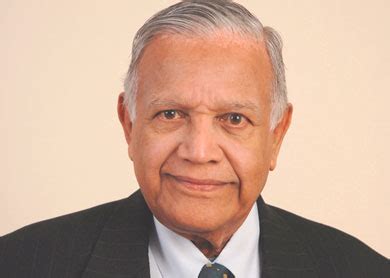A Quote by John Burroughs
The five original nuclear weapon states I mentioned - U.S., Britain, France, China, and Russia - under the NPT have committed to the achievement of the elimination of their nuclear arsenals through good faith negotiations of nuclear disarmament - that's Article Six of the treaty.
Related Quotes
The court was unable to rule on all circumstances in which nuclear weapons might be used, and it said in view of the problems, the risks posed by nuclear weapons, and in view of the lack of certainty of the law in all circumstances, the best course is fulfilling the obligation of good faith negotiations of nuclear disarmament contained in the nuclear non-proliferation treaty.
But elimination will only happen if all countries - nuclear and non-nuclear states - genuinely work towards this result. Nuclear states must abolish their arsenals, as was indicated by the unanimous opinion of the international Court of Justice, the highest international tribunal. The five nuclear states seem to expect others to refrain from obtaining bombs while at the same time maintaining their own caches of deadly weapons.
For the United States to recommit itself to the obligation that we undertook in the Nuclear Non-Proliferation Treaty that many other states undertook, which was to work towards disarmament and the eventual elimination of nuclear weapons, is something that manifestly serves our national security interests.
Negotiations with Iran, especially, will not be easy under any circumstances, but I suspect that they might be somewhat less difficult if the nuclear-weapon states could show that their requests are part of a broader effort to lead the world, including themselves, toward nuclear disarmament. Preventing further proliferation is essential, but it is not a recipe for success to preach to the rest of the world to stay away from the very weapons that nuclear states claim are indispensable to their own security.
One of the most serious [challenges] is increased military spending and the cost of maintaining and developing nuclear arsenals. Enormous resources are being consumed for these purposes, when they could be spent on the development of peoples, especially those who are poorest. For this reason I firmly hope that, during the Nuclear Non-Proliferation Treaty Review Conference to be held this May in New York, concrete decisions will be made towards progressive disarmament, with a view to freeing our planet from nuclear arms
The basic problem with the Non-Proliferation Treaty is there's no teeth in it, no penalties for countries that don't comply. Worse, as you say, the very naïve structure of the NPT has actually made it helpful for countries who want to acquire nuclear weapons. Iraq, North Korea, Iran, all used the NPT to build up their nuclear programs.
We have been led to believe that we have come a long way toward world nuclear disarmament. But that is not the case. Our government is not doing all that it could. We must urge our leaders to fulfill the obligations of the Nuclear Non-Proliferation Treaty. The United States must assume world leadership to end once and for all the threat of nuclear war. It is our moral responsibility.
There is a Western world. There is America. There is Great Britain and Germany and France and Russia and China and other nations. I doubt that there is one country amongst those I mentioned which has a desire to see Iran, with its fundamentalist, Islamic, extremist government, possessing nuclear weapons.
We have a crisis in nuclear weapons, and again, thanks very much to the Democrats: Bill Clinton, who removed us from the Anti-Ballistic Missile Treaty framework for nuclear disarmament, and then Barack Obama, who created a trillion-dollar budget for us to spend on a new generation of nuclear weapons and modes of delivery.






























